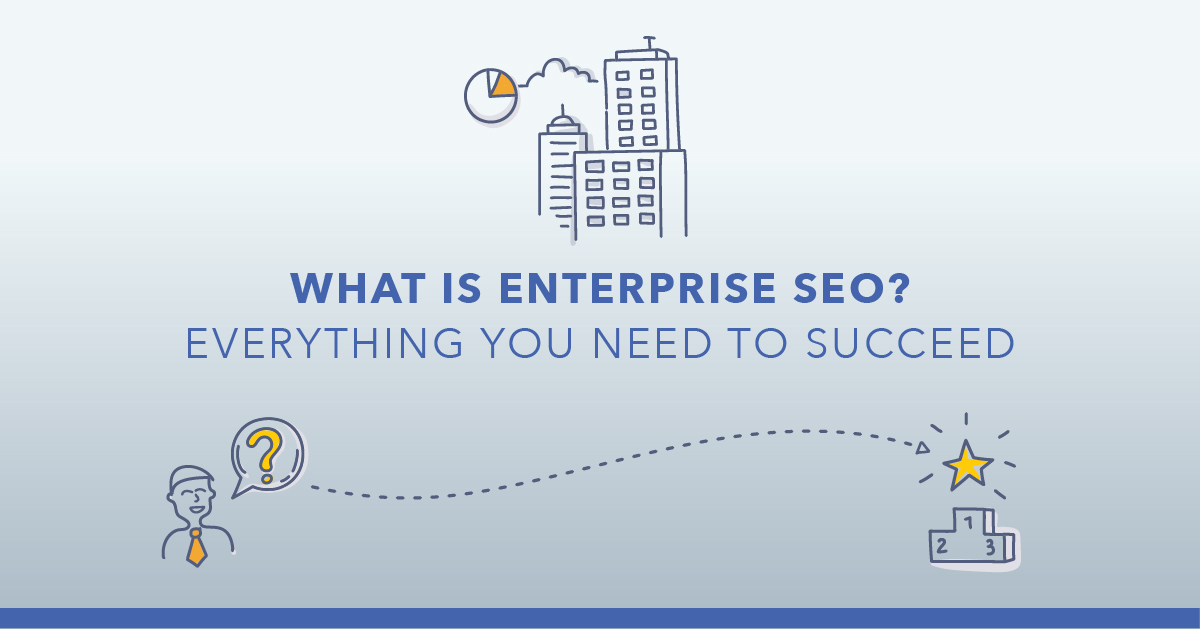Over the course of a year, we took a look at more than 500 websites and analyzed more than 19 billion clicks to see where the bulk of traffic came from. The answer: Organic search.
Nearly a third of the traffic is driven by organic search! This means that SEO is the most important traffic source for websites.
Your company may have brought on an SEO specialist to fill the organic search gap and capitalize on this opportunity. Or, maybe your company underwent a merger or acquisition, and that’s how the SEO manager came aboard.
Now it’s your job as a Senior Digital Marketing Manager or Director to manage the SEO specialist. You’re responsible for monitoring their KPIs and making sure they follow through on their responsibilities.
But … What exactly are their responsibilities?
You’ll learn all that and more in this post, so you can confidently manage the manager, even if you yourself have no prior SEO experience.
What is SEO?
You may be thinking “What is SEO?”
You know that it stands for search engine optimization, but what is it really?
SEO is the process of publishing content, optimizing your site, and offering the best user experience possible so your website can rank organically (i.e. without paid advertising, unlike with search engine marketing) on Google’s search engines results pages.
A lot goes into SEO (content marketing, keyword research, technical SEO, competitive analysis, and plenty more) and it’s a fairly misunderstood marketing channel.
We’ve put together a helpful guide on the basics of SEO that covers everything in detail. You’ll even learn why it’s better to think of search engine optimization as search experience optimization.
What is Enterprise SEO?
Enterprise SEO follows the same structure as SEO that we described above: create relevant content and optimize your site to provide the best possible user experience.
Enterprise sites, however, tend to consist of upwards of thousands of pages — some even reach into the millions!
Many departments at enterprise companies also turn a blind eye to SEO, even though their work also deals with the user experience, and really can have an impact on the SEO program.
Need enterprise SEO in a nutshell? I recommend Enterprise SEO Best Practices: Cliff Notes for Digital Marketers Who Are Now in Charge.
Here’s what makes SEO at the enterprise level challenging:
- Large sites
- Multiple teams touching and editing the site without the SEO knowing
- Hard to earn buy-in
- People don’t believe in SEO (value needs to constantly be proven)
- Difficult to scale
Why are we telling you all of this?
Knowing what your SEO manager is dealing with will help you better understand their work and level of progress.
Your business probably brought on this SEO specialist because they are capable, after all.
What is an SEO Manager?
An SEO manager forms the SEO roadmap and sets the overall SEO strategy for the rest of the in-house SEO team.
They also monitor site performance to gauge whether or not the organic search initiatives are working.
Access our SEO manager job description template:
SEO managers are usually hired because they demonstrate the following skill sets:
1. Communication Skills
Communicate with external vendors, talk to internal team members, and educate the entire company on the benefits of SEO.
2. Analytical Thinking
Process data, see patterns, apply insights to refine and execute strategies.
3. Management Skills
Leading a team and ensuring they follow through on their KPIs. It’s also important to be a good leader, since things in SEO can be unpredictable.
4. Adaptability
Since SEO changes so frequently, an SEO manager needs to be nimble and adaptable. They wear many hats to understand what is happening in the industry, and how these changes impact their work and performance outlook.
5. Multi-faceted approach to SEO
SEO consists of three main components: Usability (is your website technically sound), Relevance (is your content targeting the right audience, and does it cover the topic in the right way), Authority (do you build backlinks, earn citations, and have a good reputation).
A good SEO specialist understands how these components come together to offer a positive user experience.
… it's important for [the SEO Manager] to understand all areas of SEO: usability, relevance, and authority. They should be good at problem solving and be experienced to predict potential problems.”
— Chris Sachs, VP of Client Success, seoClarity
What Does an SEO Manager Do?
SEO is a fast-moving, ever-evolving industry so an SEO manager’s day never looks the same.
Here are some of the things you can expect your SEO manager to do:
- Analyze data from Google Analytics, Google Search Console, and other SEO software to pull insights and uncover opportunities for organic growth
- Conduct SEO tests
- Conduct keyword research
- Plan content marketing efforts
- Optimize content and landing pages
- Monitor SEO and analyze key metrics: traffic, click-through rate, bounce rate, time on page
- Present to clients and/or executives
- Plan marketing campaigns for the organic channel
- Monitor technical SEO and run site audits
- Build backlinks
- Collaborate with internal teams to implement SEO fixes (and educate them on the importance of SEO)
- Create business cases to earn more buy-in for the organic channel
- Follow industry updates (like Google updates, SERP template changes, etc.)
For a complete look at the duties and a list of relevant qualifications, don't forget to look at our SEO manager job description packet!
How SEO Impacts the Entire Organization
Since SEO directly relates to the user experience, the SEO’s work actually has an influence on the entire company.
All teams can benefit from the mindset of organic search and improving the user experience.
For enterprise organizations especially, this is crucial in driving business and forming a cohesive bond between the various teams.
The SEO manager has a lot to work through and a lot of people to convince. When you understand their challenges and the importance of their work, you can help them evangelize SEO across the organization.
Top performing businesses think about SEO differently: They follow a framework that prioritizes the user experience in every aspect of the business, and no one knows user experience better than the SEO manager.
Did you know? Google often updates its search algorithm, but a good SEO specialist knows that you can’t keep up with the constant algorithm updates. Successful SEO keeps the user experience in mind at all times.
Managing the Manager
Enterprise SEOs are suited with specific skills that allow them to succeed at the enterprise level — despite the many challenges.
When you have an understanding of the complexities of enterprise SEO, paired with the responsibilities of the SEO, you’ll be better able to manage them and their work.
You also become an ally for them and help to knock down silos between other departments because you see all the work they are trying to do by themselves.








Comments
Currently, there are no comments. Be the first to post one!